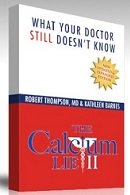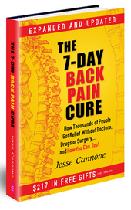|
High Fructose Corn Syrup
Safe and Convenient or Deadly and Toxic?
High fructose corn syrup was only developed in the 1970s but now it is consumed in America in higher amounts than table sugar. It is used in almost all processed foods, in many cases, as a replacement for common sugar. It helps to extend the shelf life of processed foods, is less expensive to produce than sugar and easy to transport and use because it is liquid. But are there any problem with it? Is it safe?
A major concern is over exposure to mercury which is used in the production of high-fructose corn syrup. Mercury is a highly toxic substance. Mercury is toxic in every form and is about the most toxic non-radioactive material there is.
High-fructose corn syrup (HFCS) - referred to as isoglucose in Europe and glucose-fructose in Canada - includes corn syrups that have been processed to increase the fructose content and then been mixed with pure corn syrup (100% glucose). HFCS is used in a great variety of processed foods and beverages, including breads, cereals, breakfast bars, soft drinks, luncheon meats, yogurt, cookies, salad dressing, soups and condiments. According to a peer-reviewed report published in 2009 by Environmental Health, high-fructose corn syrup has been found to be commonly tainted with mercury. Traces of mercury have been found in name-brand foods from makers such as Quaker, Hunt's, Manwich, Hershey's, Smucker's, Kraft, Nutri-Grain, and Yoplait.
A study by Environmental Health found mercury in nearly 50% (9 out of 20) of samples of commercial high fructose corn syrup (HFCS) tested in 2005.
In a study by the Institute for Agriculture and Trade Policy (IATP) researchers sent 55 popular branded foods and drinks where HFCS is the first or second highest labeled ingredient to a commercial laboratory for testing. The result was that nearly one third of them contained trace amounts of mercury. One researcher commented that "Given how much high fructose corn syrup is consumed by children, it could be a significant additional source of mercury never before considered." According to IATP estimates, the average American eats about 12 teaspoons of HFCS a day, with teenagers and some others perhaps eating 80 per cent higher than this.
So how does the mercury get into the corn syrup?
The processing of high fructose corn syrup, (HFCS) includes the use of caustic soda, hydrochloric acid, alpha-amylase, gluco-amylase, isomerase, powdered carbon, calcium chloride, and magnesium sulfate. Caustic soda and hydrochloric acid can contain traces of mercury. Chemicals are used to break down the kernels to release the corn starch that goes to make the syrup.
For decades, the caustic soda used has been produced in so-called "chlor-alkali" or industrial chlorine plants that use mercury cells. The caustic soda can thus contain traces of mercury.
The IATP said there are still four of the older chlor-alkali plants that use mercury cells in the US. In 2007, then Senator Barack Obama brought in legislation to make these plants phase out mercury cell technology by 2012.
At the American Chemical Society conference in August 2007, U.S. researchers suggested that soft drinks containing high fructose corn syrup, because of their high levels of reactive carbonyls, may be linked to the development of diabetes, especially in children.
Another toxic chemical; glutaraldehyde, is also used in the processing of HFCS. It's so toxic that even small amounts can damage a stomach lining.
This all shows that we are far better to eat foods closer to the way they are produced in nature. There is no such thing as high fructose corn syrup in nature - it has to be manufactured. (In spite of that, the FDA says that it meets the requirements for the use of the term "natural"!) It seems that the more man fiddles with the food the less benefit there is in it. And all too often it becomes a source of toxicity more than a source of nutrition.
The more we can get toxins out
of our bodies and
get good nutrition in
the better our systems will be able to give us health and freedom from pain.
|
Keep up to date with
valuable insights into
pain management via
a healthy lifestyle.
Receive the monthly
Natural Pain Relief
Guide Newsletter.
News articles, health
tips, specials, freebies.
Enter your email and name
in the form to the right.
|
|
|








New! Comments
Have your say about what you just read! Leave me a comment in the box below.